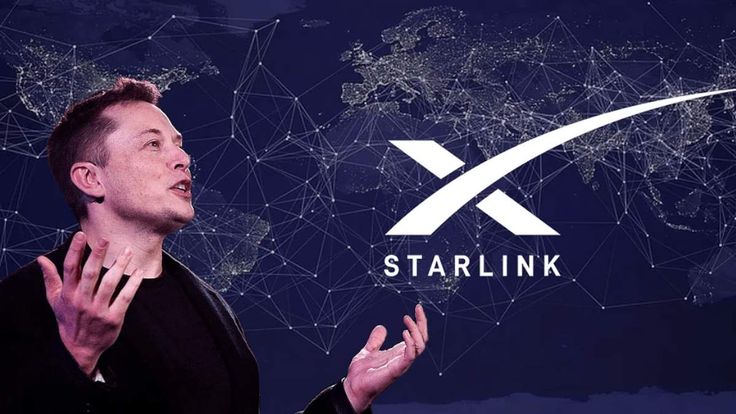Elon Musk, a name identified with innovation and technological disturbance, has been at the cutting edge of transformation within multiple industries. From electric vehicles with Tesla to space exploration with SpaceX, Musk’s influence exceeds business. Their ideas often intertwine with government policies and national efficiency. Among the most fascinating aspects of his work is the DOGE Initiative, a notion that has spurred debates about the role of private entrepreneurs in government efficiency.

Table of Contents
Understanding the DOGE Initiative
Elon Musk in Favour of Decentralization
SpaceX’s Role in Efficiency
Potential Challenges of Implementing the DOGE Initiative
Possible Public Reception, Future Outlook
The Final Thoughts: Can Elon Musk Improve the Efficiency of a Government?
What Do You Say?
Understanding the DOGE Initiative

DOGE Initiative is not just a reference to Musk’s well-known support for Dogecoin, the cryptocurrency that gained traction due to his frequent endorsements. The DOGE Initiative is rather broad-Vision Decentralized Optimization for Government Efficiency-a conceptual framework to make bureaucratic work easier through decentralization, automation, and innovation.
Elon Musk has been publicly critical of government inefficiencies, particularly in the fields of infrastructure planning, airline regulation, and means of transport. With the DOGE Initiative, he aims to apply blockchain technology and artificial intelligence-led automation in tandem with a private-public partnership in order to achieve effectiveness in government operations.
Elon Musk in Favor of Decentralization
Musk has always been an advocate of decentralization, which in itself is the core of the DOGE Initiative. The thinking here is that through the removal of bureaucratic roadblocks blocking the road to efficiency and transparency among governments, blockchain technology can come into play.
Key Features of Decentralization in Government
1. Transparency to Be Provided by Blockchain
o Using blockchain to track all the money spent by governments to make sure everything is accountable and above-board.
o Smart contracts may allow transactions to execute without human intervention, therefore minimizing corruption and inefficiencies.
2. Administrative Efficiency Through AI
o Use AI chatbots to answer citizen queries, thus preventing bottlenecks for response times and increasing accessibility.
o Automate the paperwork process as well as the entering of statistics, thereby reducing human error in work for the government.
3. Decentralized Funding and Public Participation
o Citizens could use cryptocurrency for funding public projects, thus providing a more transparent allocation of funds.
o Introducing decentralized voting systems for policy decisions encourages public participation.
SpaceX’s Role in Efficiency
Musk’s SpaceX has already shown how private entities can enhance government projects. NASA has long struggled with cost overruns and inefficiencies, but SpaceX’s reusable rockets have emerged to drastically reduce costs for space exploration. This partnership is one prime example of how private-sector innovation can streamline costs in the government and optimize how to run operations.
The DOGE Initiative suggests that a similar approach could be applied across various industries, such as transportation, energy, and defense.
Examples of Private Sector Impact on Government
• Starlink Connectivity: SpaceX’s Starlink satellites could improve internet access in rural communities, a problem that many governments have struggled with.
• Tunneling Solutions from Boring Company: Musk’s Boring Company has the potential to warp how infrastructure projects are executed to be simultaneously faster and cheaper.
• A Tesla Energy Solution would reduce energy dependence and increase sustainability.
Potential Challenges of Implementing the DOGE Initiative
There are a lot of ambitious concepts to achieve with Musk’s vision for government efficiency through decentralized public management. But with ambition comes difficulty.
1. Resistance from Traditional Bureaucracy.
• Many government agencies employ older technologies and would be highly resistant to rapid transformation.
• Transitioning to AI-powered and blockchain technologies is expensive in terms of training time and resources.
2. Regulatory and Security Concerns.
• Govenments would be hesitant implementing a cryptocurrency-based funding system for fear of volatility and security.
• Cybersecurity risks presented by decentralized digital systems need to be dealt with to eliminate breaches and fraud.
3. Ethical Considerations.
• With the involvement of private companies in running government operations comes the ethical issue of corporate influence on policy-making.
• There would still be the issue of how to ensure fair competition is offered among the private firms for service replacement in order to avoid monopolization.
Possible Public Reception, Future Outlook

Public reception of Musk’s ideas about streamlining an efficient government is mixed. Individual views between tech lovers and decentralization advocates support his vision, whereas policy experts and lawmakers remain skeptical as to whether this is physically probable.
That said, with Musk’s talent to correlate ambitious ideas with realizations, the DOGE Initiative is not that far-fetched. Governments elsewhere in the world are already undertaking experimental projects that include blockchain for record-keeping purposes and AI for the automation of public services; it is this Musk push that just may accelerate this trend.
Himself ever-optimistic about technology’s promises, Musk believes future changes may include:
• A growing partnership between the government and private tech firms to enable bureaucratic processes modernizations.
• A better acceptance of blockchain-based, voting and digital identity verification.
• Wider use of AI-based agents and automation for public questions and processes.
The Final Thoughts: Can Elon Musk Improve the Efficiency of a Government?
Elon Musk has already disrupted many industries, and while pushing for government efficiency, he finds traction with ideas around decentralization and automation. The DOGE Initiative may, in all sensibilities, provide a very useful proposition for reducing bureaucracy and increasing transparency.
Will governments accept these philosophies? That we can only guess. However, with the rapid evolution of technology, Musk’s influence toward public administration could seemingly materialize any day now. If carried on, the DOGE Initiative may reshape the operations of the government into something more transparent, effective, and citizen-focused.
What Do You Say?
What’s your opinion in the comments below? Is the Musk’s approach to the government efficiency feasible?

